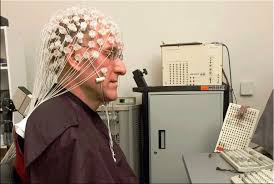I can’t tell you how many meetings I’ve sat in over the years in which I’ve had to bite my tongue as someone at the table talked about their “preferred visual learning style” or being “right brained.”
Why would this bother me?
Because both of those popular beliefs are false.
Brain scans show that people don’t show any side-preference when their brains are at rest. If they had a hemisphere preference, you would expect an imbalance in neural activity… but you don’t find that, at all.
And if you scan someone’s brain when they’re doing analytical tasks, you see massive activation across the left and right sides of the brain. Same thing with creative thinking.
The fact of the matter is that thinking, of any sort, is a whole-brain activity. Sure, some areas will get more active during certain tasks, but analytical mental operations don’t just tax brain nuclei on the left side of the brain. The nuclei involved in any given task are found on both sides.
“Learning styles” also happen to be unsupported by evidence. In experiment after experiment, researchers have failed to show any difference in knowledge acquisition when experimental participants use their “preferred learning style” vs. some other style (reading, etc.).
As someone who studied neuroscience in college, and had these beliefs thoroughly demolished during that time, I’ve always assumed that everyone with a background in the field knows that these ideas are bogus.
However, the results of a new survey paint a depressing picture:
“Overall, the participants with extensive exposure to neuroscience (most of whom said they had at a minimum a science or health-related university degree) endorsed just under half of the neuromyths (specifically 46 per cent, compared with 68 per cent average endorsement among the public and 56 per cent among teachers). Another clear pattern in the findings was that participants who believed one of the above myths were more likely than average to also endorse one or more of the others.”
Yes, those trained in neuroscience believed in fewer neuromyths, but they still fell prey to roughly half (46%) of them!
Freaky.
Which neuromyths were the survey participants asked about? I couldn’t find a full list (the full paper hasn’t been published yet), but there’s a partial list in this article about the survey:
-
- “Learning styles myth (endorsed by 93 per cent of the public, 76 per cent of teachers, and 78 per cent of those with neuroscience education)
- A common sign of dyslexia is seeing letters backwards (endorsed by 76 per cent of the public, 59 per cent of teachers, and 50 per cent of those with neuroscience education)
- Listening to classical music increases children’s reasoning ability (endorsed by 59 per cent of the public, 55 per cent of teachers, and 43 per cent of the neuroscience group) [more on music-related neuromyths]
- Children are less attentive after consuming sugar (endorsed by 59 per cent of the public, 50 per cent of teachers and 39 per cent of the neuroscience group)
- The left-brain right-brain myth (endorsed by 64 per cent of the public, 49 per cent of teachers and 32 per cent of the neuroscience group)
- The 10 per cent myth (endorsed by 36 per cent of the public, 33 per cent of teachers, and 14 per cent of those with neuroscience education – my unfriendly correspondent is not alone).”
Can you guess what the two most believed neuromyths were?
The “learning styles myth” and the “dyslexia myth” (the belief that seeing letters backwards is a sign of dyslexia).
OK— How should you use this information? What does it mean?
It means that you should stay skeptical. Just because someone studied psychology, cognitive science, or neuroscience doesn’t mean that you should trust them… Yes, education helps, but it doesn’t solve the neurobabble problem.
It also means that if you’re reading someone’s work and they mention any of these neuromyths, you should probably take what they say with a huge grain of salt. They’ve got a head full of fake news ( ), after all.
– Jason
PS: If you hate neuromyths, you should become one of my supporters on Patreon. It would mean the world to me… and, in return for your support, you can get access to my future products/books before they’re released, and get access to an exclusive monthly Google Hangout I’m going to start hosting.





